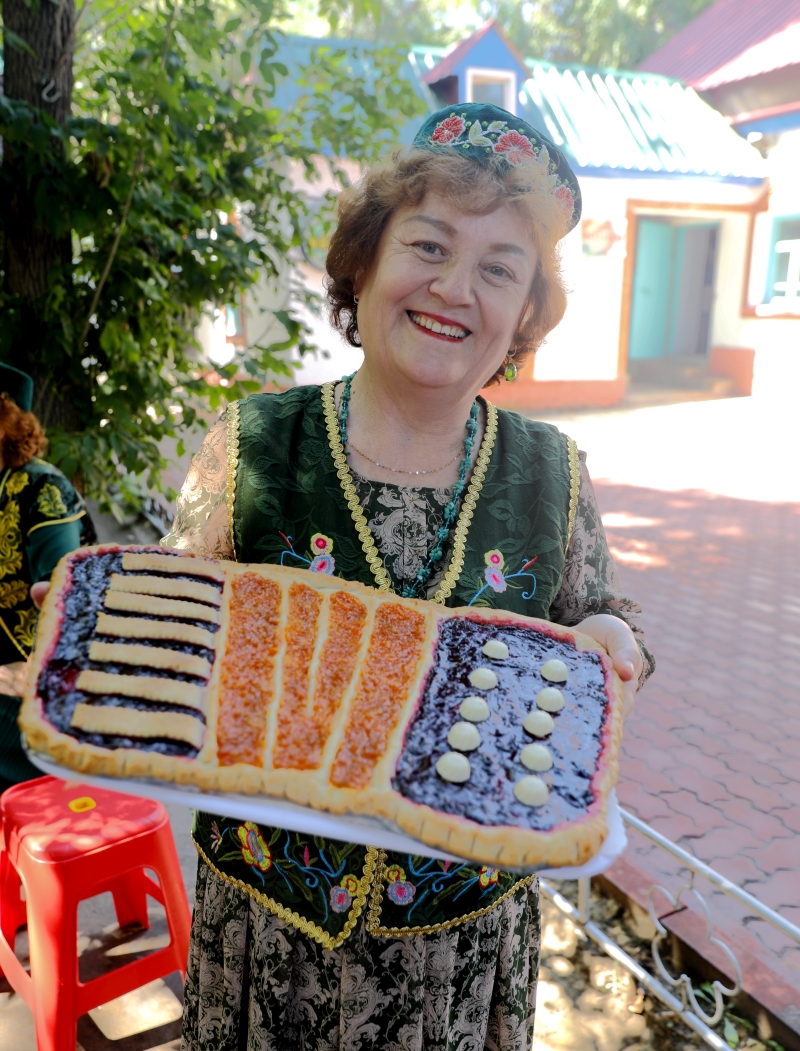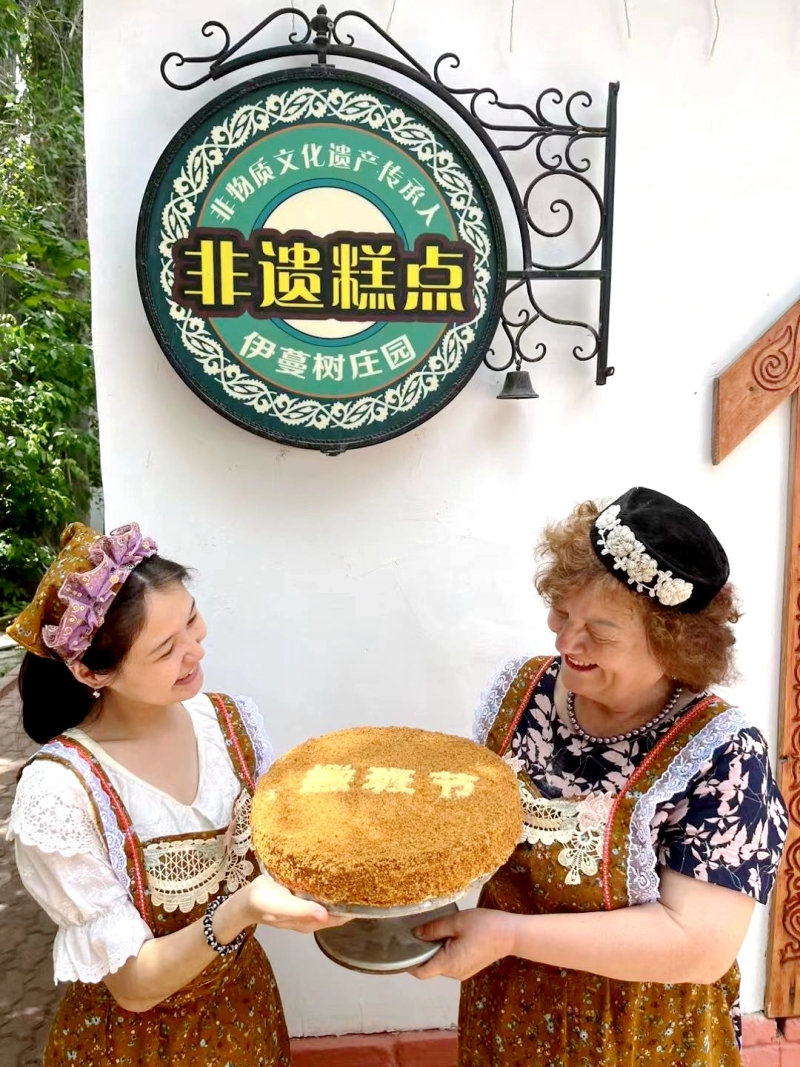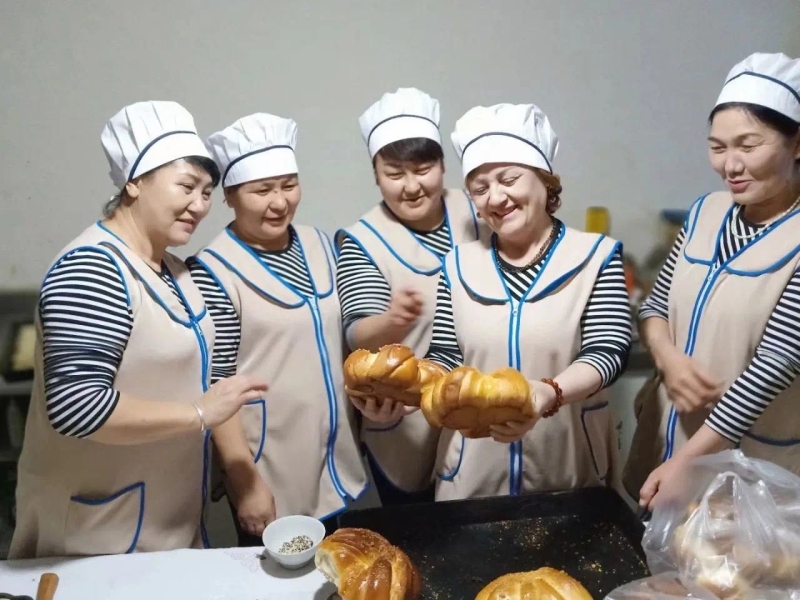On November 16, 2024, walking into the Yangpopo Food Shop in Yimanshu Manor, Huancheng Road, Tacheng City, northwest China's Xinjiang Uygur Autonomous Region, you can see neatly arranged plates of exquisite pastries with bright colors.
“We make Tatar cuisine as long as we stay at home," Zaitunna Calimuwa, a resident of Tacheng City, said.

Photo shows an accordion-shaped pastry made by Zaitunna. (Photo by Wang Ting)
Zaitunna has thick golden natural curly hair and blue eyes. She is a representative inheritor of the Saban festival of Tatar ethnic group,a national intangible cultural heritage, and is also well-known for her expertise in making traditional Tatar pastries. For many years, she has been dedicated to the inheritance and promotion of ethnic culture.

File photo shows Zaitunna and her family.
In 2008, the Saban festival of Tatar ethnic group was included in the list of State-level intangible cultural heritage items. "Saban" is a plowing tool. And Saban promoted the improvement of agricultural productivity of Tatar people. So, in commemoration of the invention of this new plow, Tatar people gather together to celebrate after the spring plowing season ends every year. At the festival, people will participate in various entertainment activities and cultural performances such as wrestling, running, horse racing, etc.
“I was born into a Tatar family. After my ancestors settled in Tacheng City in 1915, they have always kept the tradition of celebrating the Saban festival. As an inheritor, I also introduce exquisite and delicious Tatar pastries to all parts of the country," Zaitunna said.

Photo shows Zaituna makes pastries with the people of different ethnic groups.
Zaitunna has adhered to making and inheriting Tatar traditional pastries. From family workshops to stores, from only teaching to family members to having over a hundred apprentices across the country, from only 20 types of products to more than 60 now, her persistence has also paid off. She also transformed her century-old house into an ethnic Tatar folk house. With her efforts, more and more people know Tatar cuisine and the charm of diverse cultures in Xinjiang.
In order to let more people know and understand the Tatar ethnic group, and to inherit Tatar traditional cuisine and pastry making skills, Zaitunna spent eight months and wrote a handbook about the Tatar ethnic cuisine and pastry skills, which recorded nearly a hundred methods of making Tatar ethnic cuisine and pastries for people to learn.
Zaitunna said, "Due to the characteristics of the materials, traditional pastries have a difference in taste from the popular ones nowadays. In order to keep the characteristics of traditional pastries and meet the taste of the public, we will constantly improve and innovate in the materials and production process.”
In addition, Zaitunna also visited and exchanged ideas, learned from professors, wrote books, and organized children's summer camps throughout Xinjiang to attract more children to learn pastry making. "Sharing is a kind of happiness. When I pass on my skills to people of all ethnic groups, I feel very happy and successful," Zaitunna said.
(The Media Convergence Center of Tacheng Prefecture, Reporter: Wang Ting)









